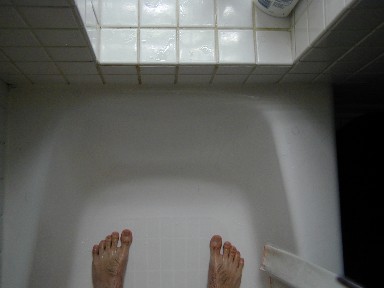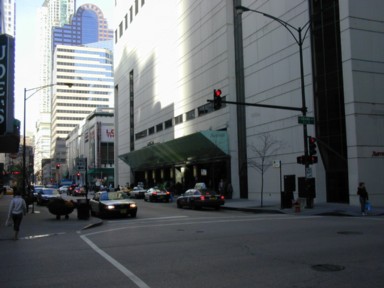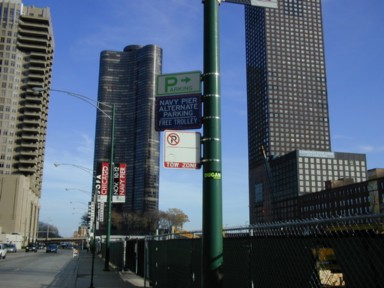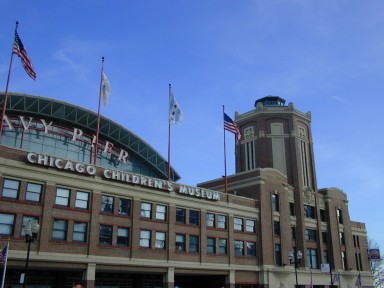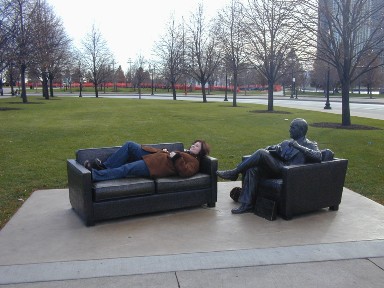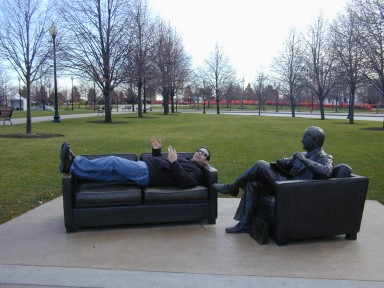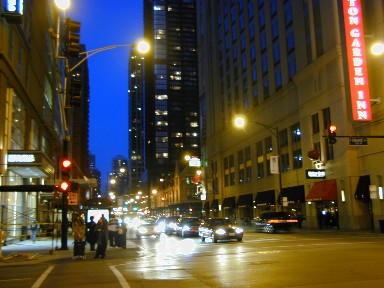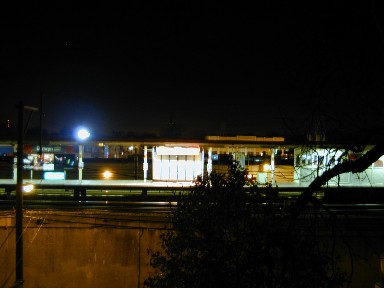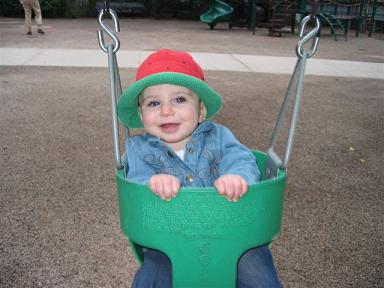Sen. Joe Lieberman in CT:I supported Ned Lamont, winner of the Democratic primary election. Initially, I felt that Lieberman would have trouble competing as an independent against two major-party candidates and that Lamont would win in the general election. My friend Antonio posted an opposing view in the comments, and he turned out to be correct. Lieberman did lose some support, only getting about half the vote, by far his lowest percentage since he edged out Lowell Weicker in 1988. But in a three-way race, half the vote was easily enough to win. Lamont staffer David Sirota wrote a nice article for
In These Times about his experiences in the campaign (
link to article).
Cook County Board President:I had endorsed Commissioner Forrest Claypool in the Democratic primary. He lost to a guy in a coma, so it just shows the value of my endorsements. Then, behind closed doors, Alderman Todd Stroger, son of the guy in a coma, was anointed as the Democratic candidate. As far as I can tell, his main qualification is that he's the son of his predecessor. The general election was decided on the following factors: loyalty to the Democratic machine, support of values espoused by one's favored party, and good governance. The north side of Chicago (Lincoln Park, Lakeview, and points northwest) is usually very reliable for the Democrats, but the above factors gave them little reason to vote for Stroger; these wards voted for Peraica, the Republican. This same area falls within the Cook County Board's 10th District, with Democrat Mike Quigley as its commissioner. Quigley ran unopposed and got over 45,000 votes, more than any other commissioner.
Illinois 10th Congressional District:I was hoping that Dan Seals would unseat Mark Kirk. He came within 6 percentage points of doing so, a reasonably good showing in a district that has recently been gerrymandered to make it safer for the Republican incumbent.
Other races:Another closely watched race in the Chicago area was Duckworth vs. Roskam in the 6th District (left vacant by the retiring Henry Hyde). This has long been a Republican stronghold, but it has been trending Democratic. In 2004, Democrat Christine Cegelis ran a good race against Hyde without much support from the Democratic Party, and I was disappointed that Cegelis' strong showing failed to earn her the support of Rahm Emanuel and the party establishment. This election cycle, there had been some disagreement between the DNC's Howard Dean and the DCCC's Emanuel in terms of strategy. Probably both strategies had some merit and complemented one another. Neither of Emanuel's big gambles in Illinois (in the 6th and 10th Districts) paid off, but Dean's "50-state strategy" helped some candidates win in other parts of the country where there may not have been a strong Democratic organization before.
Although no additional Democrats will be heading to Washington from Illinois, the gains made by the Democratic party could be seen at a more local level. Democrats swept the statewide offices and maintained solid control over the General Assembly. And Democrats did well in county races in the traditionally Republican Chicago suburbs. In McHenry County, Democrat James P. Kennedy became the first Democrat to be elected to the County Board since 1976. In Lake County, Democrat Mark Curran defeated incumbent Sheriff Gary Del Re. And in Will County, Democrats Pat McGuire and Jennifer Bertino-Tarrant won their races for County Treasurer and Superintendent of Schools, respectively.





